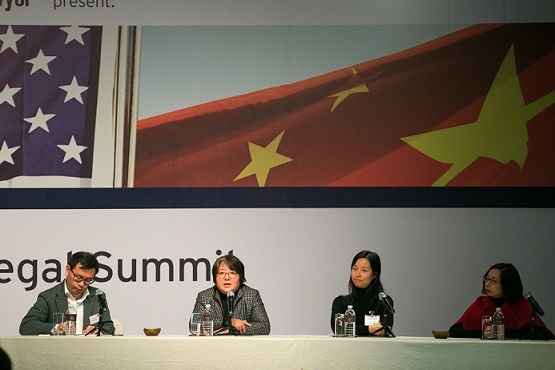The changing game for corporate counsel
December 04, 2015 | BY
Katherine JoGeneral counsel from DSM, Eli Lilly and State Street Bank in China explain how the role of in-house lawyers have become far broader now even as they work in specialized, highly-regulated and fast-paced industries

Xie Yong, Catherine Wang, Jane Huang and Elaine Sun at the U.S.-China Legal Summit in Shanghai, Nov. 25 2015




